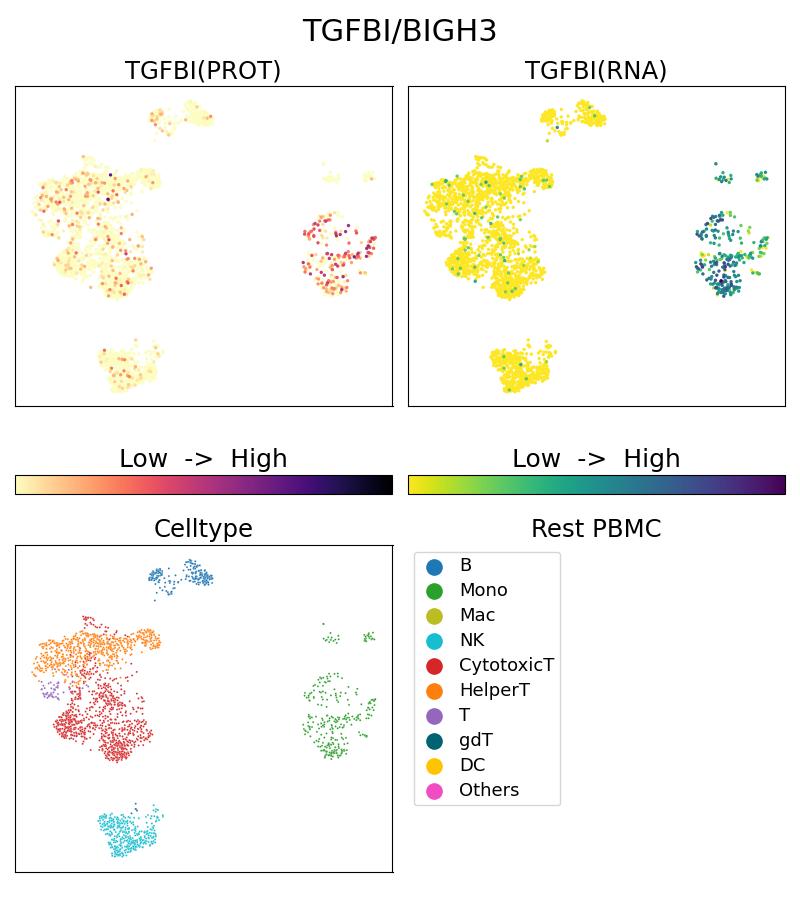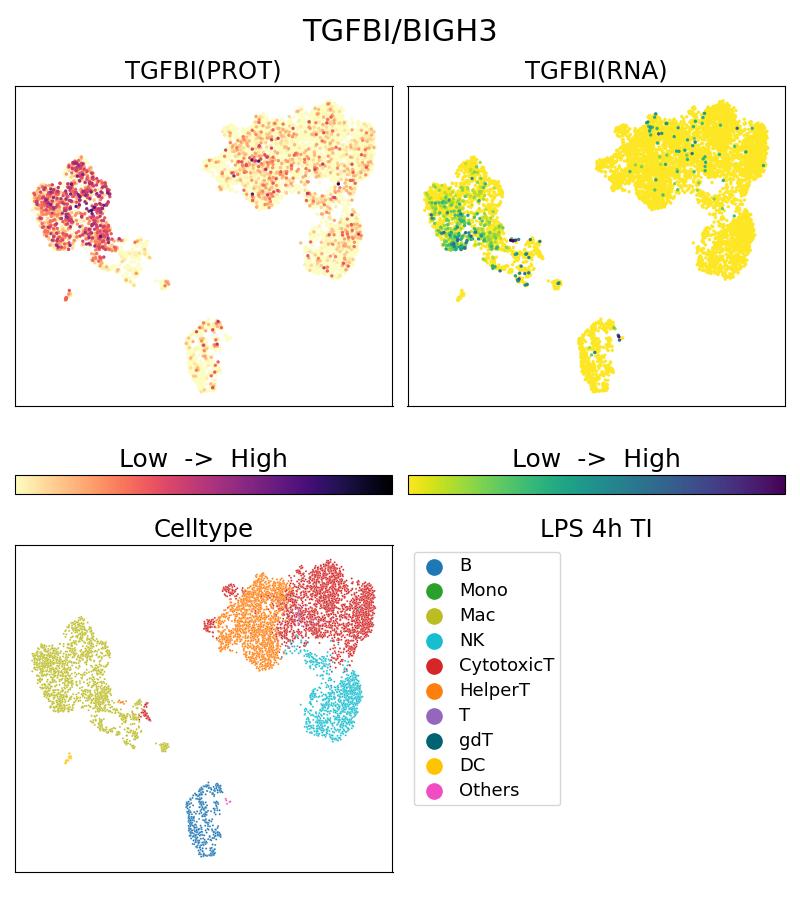Tested Applications
| Positive Single Cell (Intra) detected in | 10x Genomics Gene Expression Flex with Feature Barcodes and Multiplexing product. |
Recommended dilution
| Application | Dilution |
|---|---|
| SINGLE CELL (INTRA) | <0.5ug/test |
| It is recommended that this reagent should be titrated in each testing system to obtain optimal results. | |
Product Information
G60007-1-5C targets TGFBI / BIGH3 in Single Cell (Intra) applications and shows reactivity with Human samples.
| Tested Reactivity | Human |
| Host / Isotype | Mouse / IgG2a |
| Class | Oligo Conjugate |
| Type | Monoclonal |
| Immunogen |
CatNo: Ag0241 Product name: Recombinant human BIGH3 protein Source: e coli.-derived, PGEX-4T Tag: GST Domain: 199-406 aa of BC000097 Sequence: NIQIHHYPNGIVTVNCARLLKADHHATNGVVHLIDKVISTITNNIQQIIEIEDTFETLRAAVAASGLNTMLEGNGQYTLLAPTNEAFEKIPSETLNRILGDPEALRDLLNNHILKSAMCAEAIVAGLSVETLEGTTLEVGCSGDMLTINGKAIISNKDILATNGVIHYIDELLIPDSAKTLFELAAESDVSTAIDLFRQAGLGNHLSG Predict reactive species |
| Full Name | MultiPro® 5CFLX Anti-Human TGFBI/BIGH3 (3E11D11) |
| Calculated Molecular Weight | 683 aa, 75 kDa |
| GenBank Accession Number | BC000097 |
| Gene Symbol | TGFBI |
| Gene ID (NCBI) | 7045 |
| ENSEMBL Gene ID | ENSG00000120708 |
| RRID | AB_3673898 |
| Conjugate | 5CFLX |
| Full Oligo Sequence | CGGAGATGTGTATAAGAGACAGTCCAAGGTAACTGCGCCCATATAAGAAA |
| Barcode Sequence | TCCAAGGTAACTGCG |
| Form | Liquid |
| UNIPROT ID | Q15582 |
| Storage Buffer | PBS with 1mM EDTA and 0.09% sodium azide , pH 7.3. |
| Storage Conditions | 2-8°C Stable for one year after shipment. |
Background Information
TGFBI, also named as BIGH3, Kerato-epithelin and RGD-CAP, binds to type I, II, and IV collagens. TGFBI is an adhesion protein which may play an important role in cell-collagen interactions. In cartilage, it may be involved in endochondral bone formation. TGFBI is an extracellular matrix adaptor protein, it has been reported to be differentially expressed in transformed tissues. TGFBI is a predictive factor of the response to chemotherapy, and suggest the use of TGFBI-derived peptides as possible therapeutic adjuvants for the enhancement of responses to chemotherapy.(PMID:20509890) Defects in TGFBI are the cause of epithelial basement membrane corneal dystrophy (EBMD). Defects in TGFBI are the cause of corneal dystrophy Groenouw type 1 (CDGG1). Defects in TGFBI are the cause of corneal dystrophy lattice type 1 (CDL1). Defects in TGFBI are a cause of corneal dystrophy Thiel-Behnke type (CDTB). Defects in TGFBI are the cause of Reis-Buecklers corneal dystrophy (CDRB). Defects in TGFBI are the cause of lattice corneal dystrophy type 3A (CDL3A). Defects in TGFBI are the cause of Avellino corneal dystrophy (ACD).
Protocols
| MultiPro™ Cell Surface and Intracellular Staining Protocol | Download protocol |
| 10x Genomics Cell Surface Protein Only Staining Protocol | Download protocol |






